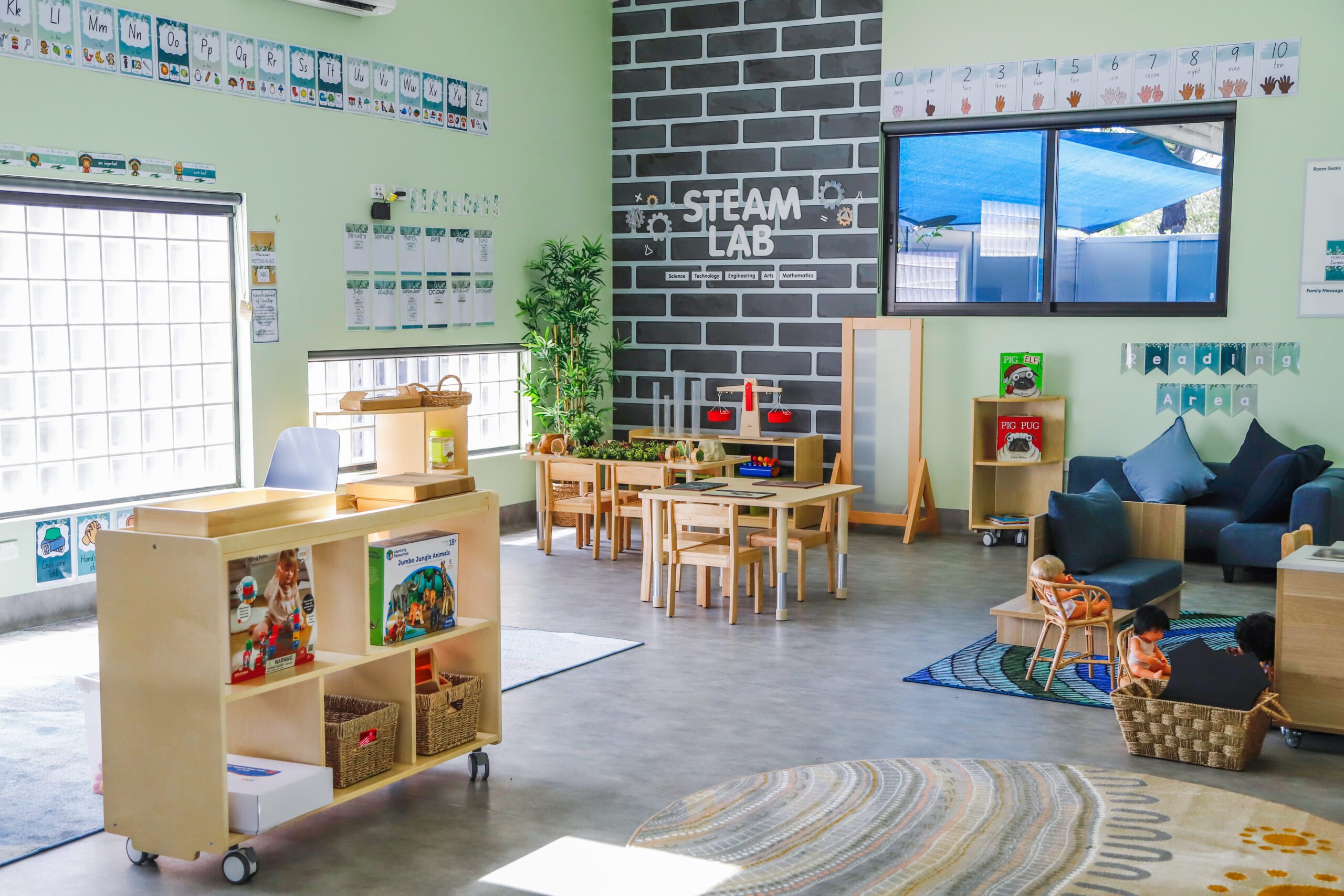
Choosing the right early education program for your child is a big decision. At Papilio, we offer Affinity Education’s Lifelong Learning Curriculum, recognised as the most advanced approach to early childhood education in Australia. By combining traditional methods with evidence-informed practices, this curriculum provides a unique, enriching experience that supports every child’s growth.
What Makes the Lifelong Learning Curriculum Unique at Papilio?
Why is Play-Based Learning Effective in Early Education?
Play-based learning is at the heart of the Lifelong Learning Curriculum, as research shows that children aged 0-5 years learn best when they’re actively engaged and having fun. This approach allows children to explore their interests while developing essential skills.
In a play-based curriculum:
- Language and communication: Through interactive storytelling and group play, children develop language skills and learn to express themselves.
- Social skills: Playing with others fosters cooperation, empathy, and conflict resolution - skills that are vital for building relationships.
- Problem-solving: Open-ended activities encourage critical thinking, helping children develop confidence in their problem-solving abilities.
Affinity Education's Lifelong Learning Curriculum followed at Papilio combines structured activities with open-ended play, respecting each child’s individuality and supporting their natural curiosity.
Exclusive Programs that Enhance the Lifelong Learning Curriculum
At Affinity Education, we’ve enriched the Lifelong Learning Curriculum with specialised programs that offer unique and valuable learning experiences. Here’s a look at some of the key programs that set our curriculum apart:
- Big Thinkers STEM: Introducing foundational concepts in Science, Technology, Engineering, and Math, this program helps children develop critical thinking skills through fun, hands-on activities.
- Positive Living Skills: This program focuses on social and emotional learning, teaching children self-awareness, resilience, and positive behavior to help them thrive in social interactions.
- Aussie Wildlife Champions: Children learn about Australian wildlife and conservation, fostering a respect for nature and understanding of environmental care.
- Wandana Aboriginal Education: Through this program, children learn about Aboriginal and Torres Strait Islander cultures, building inclusivity and understanding from an early age.
- Early Years Toolbox: A tool that supports educators in assessing school readiness, allowing us to tailor teaching strategies to each child’s unique strengths and areas for growth.
- MathSeeds and Reading Eggs: These interactive online programs build foundational math and literacy skills, complementing classroom activities to develop confidence in reading and math.
These programs are seamlessly integrated into the Lifelong Learning Curriculum, providing diverse experiences that enrich your child’s early education.
How the Lifelong Learning Curriculum Prepares Your Child for School
The Lifelong Learning Curriculum goes beyond play - it prepares children for a successful transition to primary school. With a focus on foundational literacy, numeracy, and social-emotional skills, children at Papilio enter school with the confidence and readiness needed to thrive.
Through school readiness assessments, guided activities, and supportive educator relationships, we ensure that children develop a love for learning, independence, and resilience. These qualities provide a strong foundation not only for school but for lifelong success.
Why Choose Papilio for Your Child’s Early Education?
Choosing the best early education program is about finding a place where your child feels safe, supported, and inspired. Papilio’s Lifelong Learning Curriculum combines play-based learning with advanced, evidence-based practices, setting it apart as the top choice for high-quality child care in Australia. With specialised programs like Big Thinkers STEM, Positive Living Skills, and Aussie Wildlife Champions, the Lifelong Learning Curriculum at Papilio offers an enriching, well-rounded experience.
Ready to see how our Lifelong Learning Curriculum can benefit your child? Find your nearest Papilio, book a tour and discover the unique approach that makes us the best choice for early education.
Frequently Asked Questions
The Lifelong Learning Curriculum combines play-based learning, Montessori and Reggio Emilia foundations, and evidence-informed practices like attachment theory and Project-Based Learning.
This curriculum provides a holistic foundation, supporting cognitive, social, emotional, and physical development through play-based learning and specialised programs.
Papilio’s curriculum includes exclusive programs like Big Thinkers STEM, Positive Living Skills, and Wandana Aboriginal Education, offering children under five a diverse and enriching learning experience.